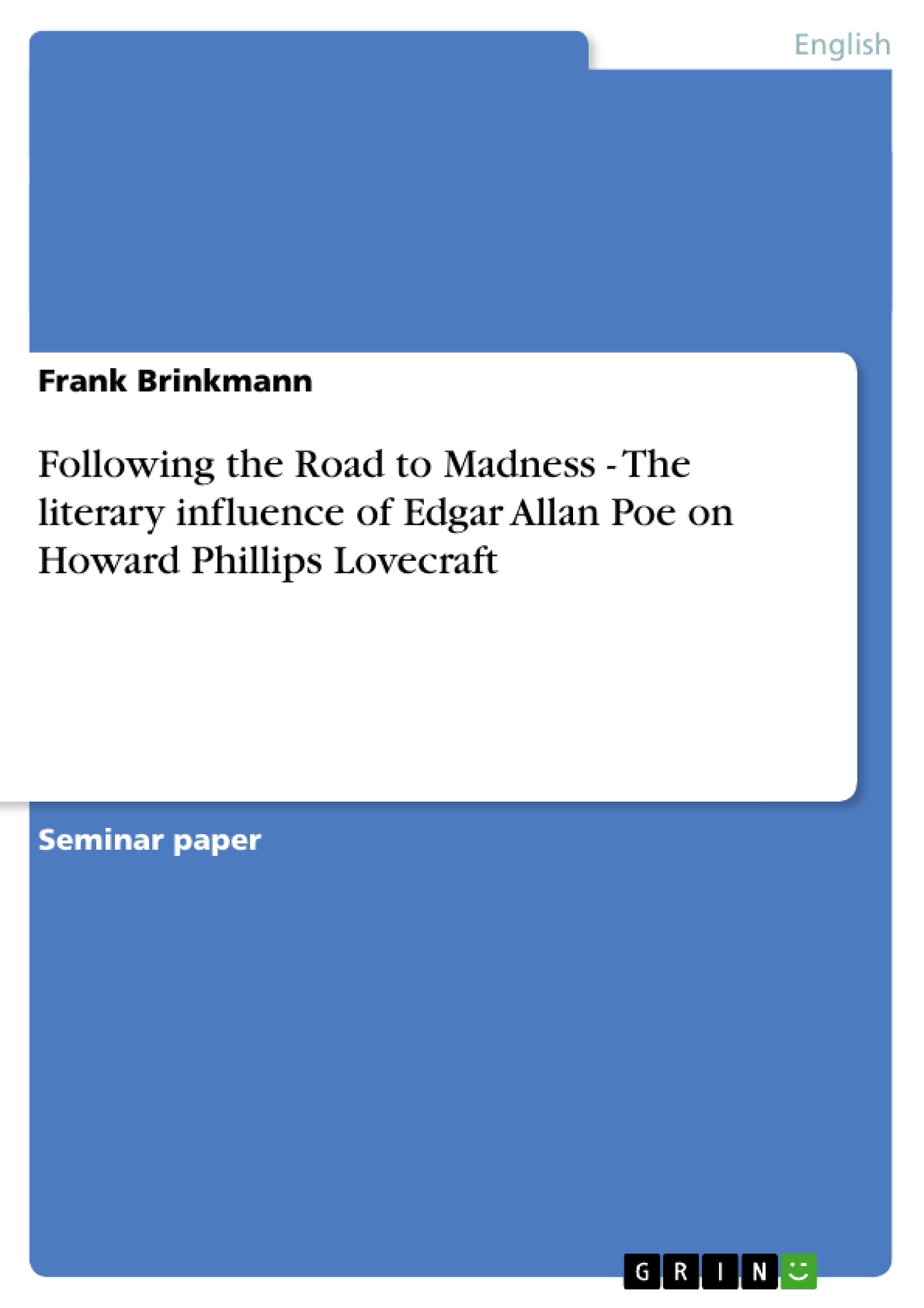The play of the orchestra strikes up in a dark and sluggish manner. Its compact sonority spreads like milky fog which starts blurring and covering all familiar elements before the human eye. Slowly, an imaginative chill seems to surround the listener. An overture that causes a slight shudder and sharpens all senses… Then, Joachim Kerzel – the German voice of Jack Nicholson - starts off:
„Das jene großen Mächte oder Wesen überlebt haben ist denkbar. Ein Überleben aus einer ungeheuer fernen Zeit, als Bewusstsein sich bildete. Vielleicht in Formen, die lange vor dem Heraufdämmern der Menschheit wieder verschwanden. Formen, von denen einzig Dichtung und Sage eine nebulöse Erinnerung bewahrt haben...“ This is the opening sequence of Der Cthulhu Mythos, an audio book published by LPL Records in 2002. It comprises horror stories by Howard Phillips Lovecraft and Ambrose Bierce. In 2003 the production was awarded with two prizes: Bestes Hörbuch des Jahres 2003, as well as Deutscher Phantastik Preis 2003. According to the company´s principle “Gänsehaut für die Ohren”, LPL Records specializes in producing audio books of horror tales. Having five other stories by H. P. Lovecraft in stock, the author from Providence, Rhode Island, can be seen as their primal draw. Just one year later, H. P. Lovecraft´s novella Der Schatten über Innsmouth was also nominated for Bestes Hörbuch des Jahres 2004 and won the Deutscher Phantastik Preis 2004 again.
Among this genre, there is only one author whose horror tales can be considered as almost equally successful: his name is Edgar Allan Poe. In late 2003 Lübbe Audio published four of his short stories to start a new Edgar Allan Poe series. A firstperson narrator and protagonist, who suffers from severe memory-loss, relives the horrors of Poe´s tales in his dreams. The quest for the narrator´s true personality and the reason of his amnesia creates the frame-story of this continuing series. Therefore, Poe´s stories work as a key to his past. Meanwhile, another four stories continue the sequence, and four more will be published in September 2005. This year, Lübbe Audio´s Poe series is expected to receive an award for more than 250.000 sold copies – an enormous success for audio books, especially of this genre!
Inhaltsverzeichnis (Table of Contents)
- The Route - An Introduction
- The Passenger - Biographical Aspects
- A Gentleman of Providence
- Parallels in the Lives of E. A. Poe and H. P. Lovecraft
- The Vehicle - On Writing Horror Fiction
- Driving the Road to Madness - Poe's Legacy in Lovecraft's Fiction
- "The Rats In The Walls"
- Reading the Traces - A Conclusion
Zielsetzung und Themenschwerpunkte (Objectives and Key Themes)
This paper aims to examine the literary influence of Edgar Allan Poe on Howard Phillips Lovecraft's fiction. It explores both authors' lives, writing styles, and approaches to horror fiction, with a particular focus on how Poe's work influenced Lovecraft's "The Rats in the Walls".
- Biographical parallels between Edgar Allan Poe and Howard Phillips Lovecraft
- The theoretical approach to writing horror fiction in the works of both authors
- The influence of Poe's style and themes on Lovecraft's work
- Analysis of "The Rats in the Walls" in relation to Poe's influence
- The enduring popularity of both authors in the horror genre
Zusammenfassung der Kapitel (Chapter Summaries)
The first chapter introduces H. P. Lovecraft as a person, highlighting his personal life and exploring striking biographical parallels with Edgar Allan Poe. The second chapter focuses on Poe's and Lovecraft's theoretical approach to writing horror fiction, examining their individual philosophies and techniques. The third chapter delves into Lovecraft's "The Rats in the Walls", analyzing the story's narrative elements and exploring the possible influence of Poe's work on its creation.
Schlüsselwörter (Keywords)
The main keywords and focus topics of this paper include: Edgar Allan Poe, Howard Phillips Lovecraft, horror fiction, literary influence, biographical parallels, writing style, "The Rats in the Walls", and the lasting impact of both authors on the genre.
Frequently Asked Questions
How did Edgar Allan Poe influence H.P. Lovecraft?
Poe's literary style, themes, and theoretical approaches to horror significantly influenced Lovecraft's writing, particularly in works like "The Rats in the Walls".
What biographical parallels exist between Poe and Lovecraft?
Both authors experienced personal struggles and shared a unique "gentlemanly" perspective from their respective backgrounds in Providence and the South.
What is the significance of "The Rats in the Walls"?
This story is analyzed as a prime example of Poe's legacy in Lovecraft's fiction, showcasing similar narrative elements and psychological horror.
Why are these authors still popular in the horror genre?
Their ability to sharpen the senses and create a "shudder" through atmosphere and psychological depth ensures their lasting impact on modern horror media.
What is the "Cthulhu Mythos" mentioned in the text?
It is a shared fictional universe created by Lovecraft, often featured in modern audiobooks and horror collections alongside other masters of the genre.
- Arbeit zitieren
- Frank Brinkmann (Autor:in), 2005, Following the Road to Madness - The literary influence of Edgar Allan Poe on Howard Phillips Lovecraft, München, GRIN Verlag, https://www.grin.com/document/43261



